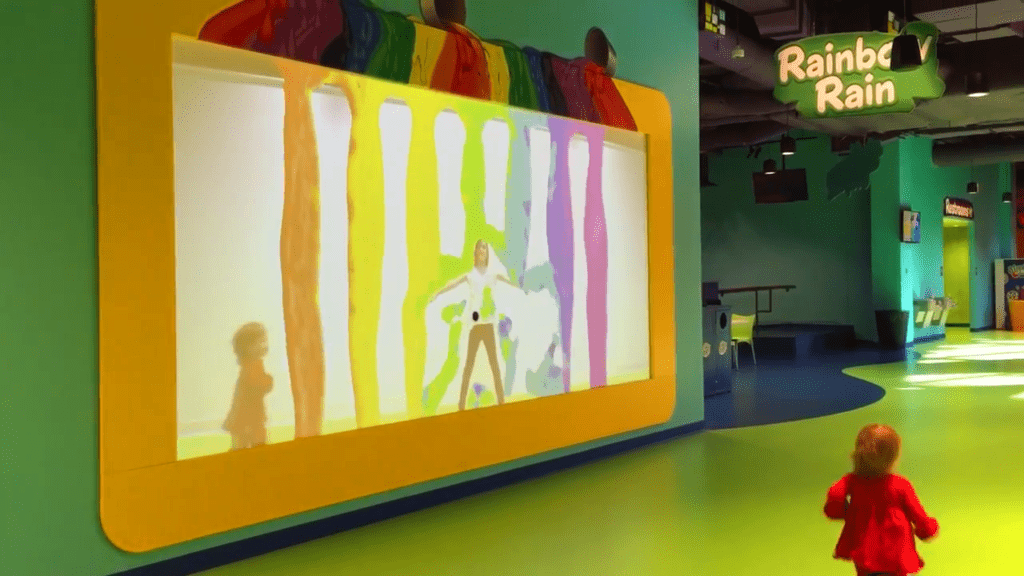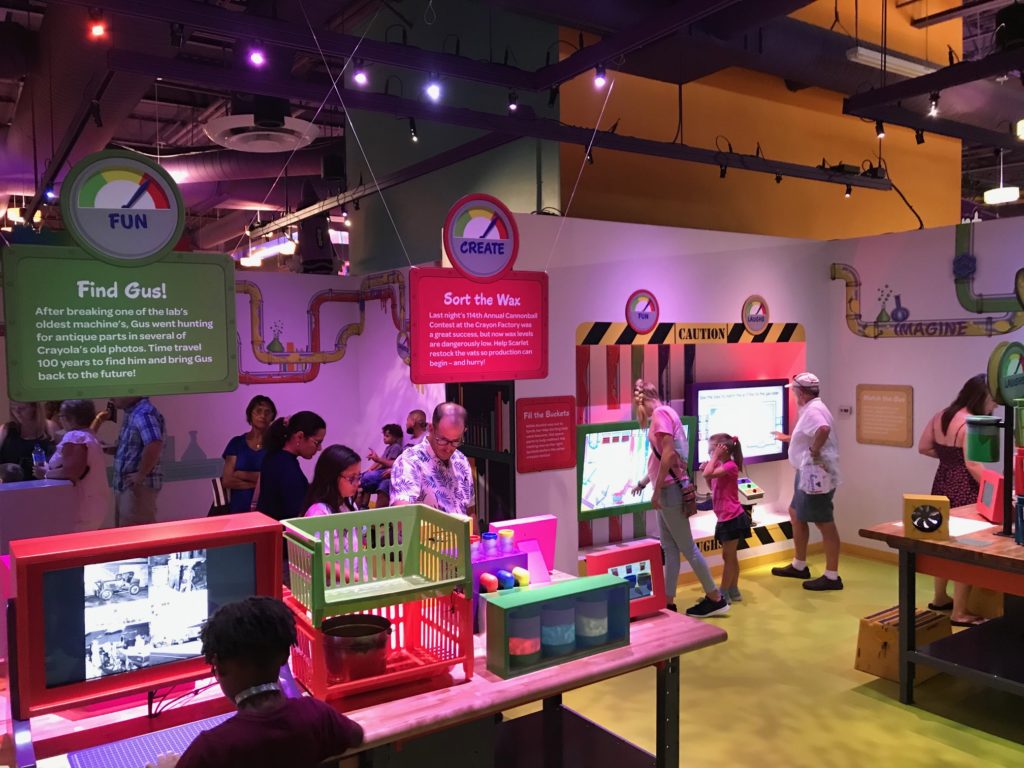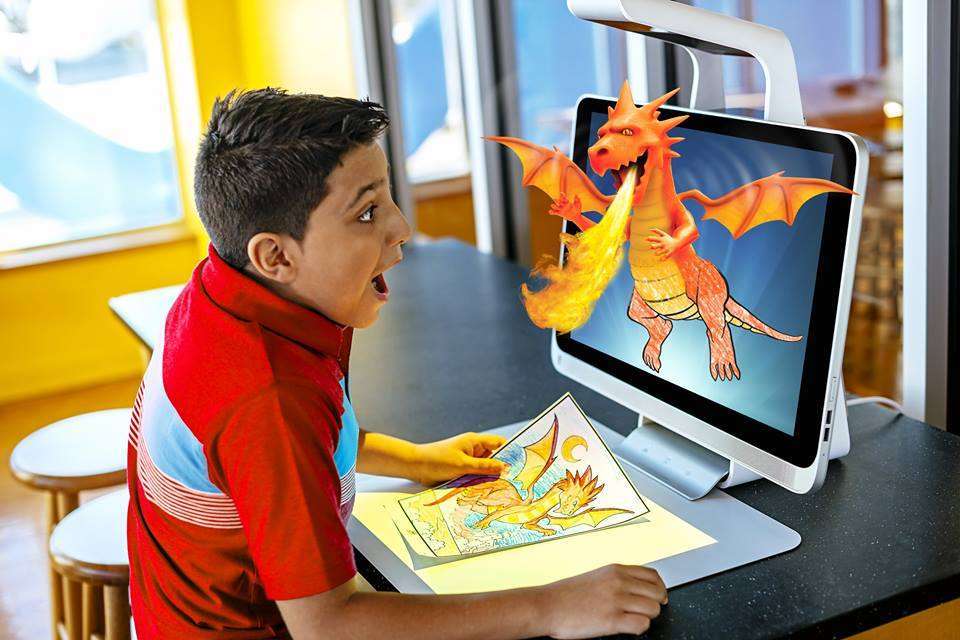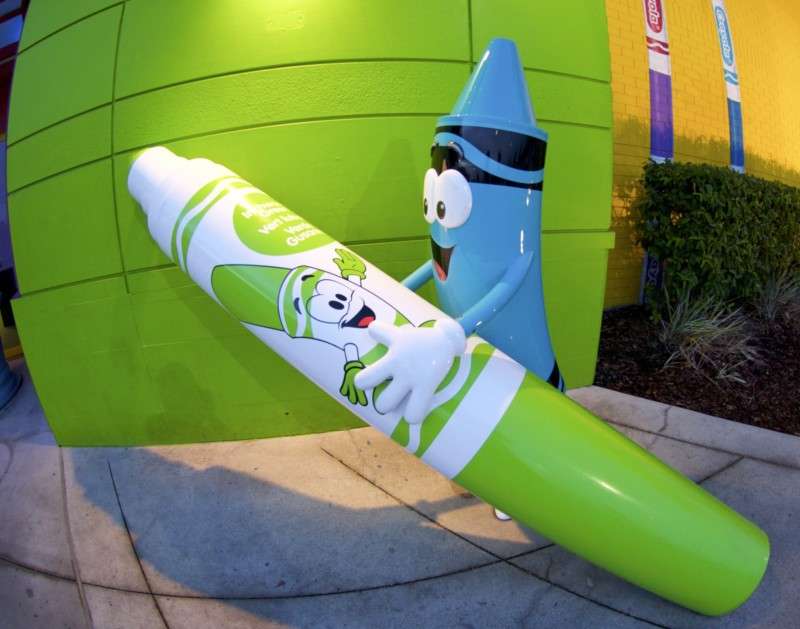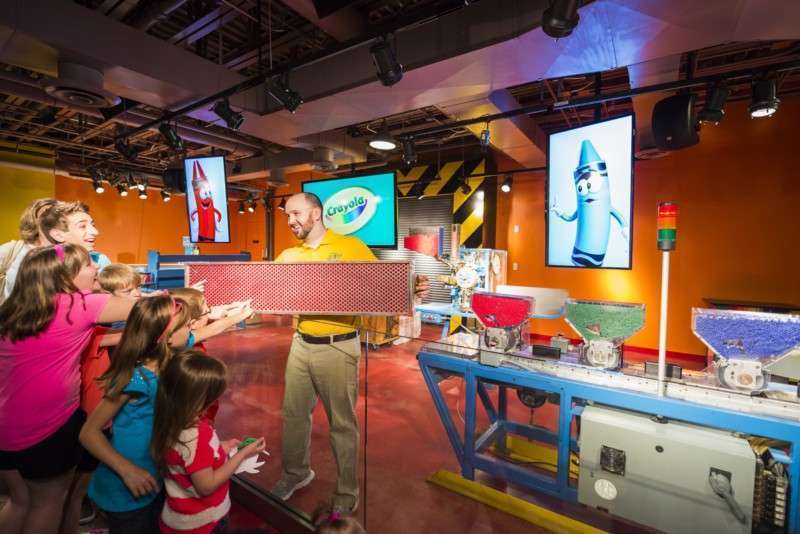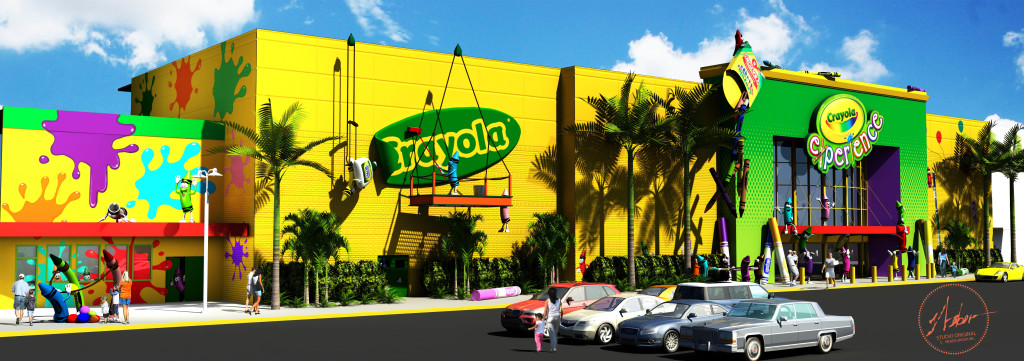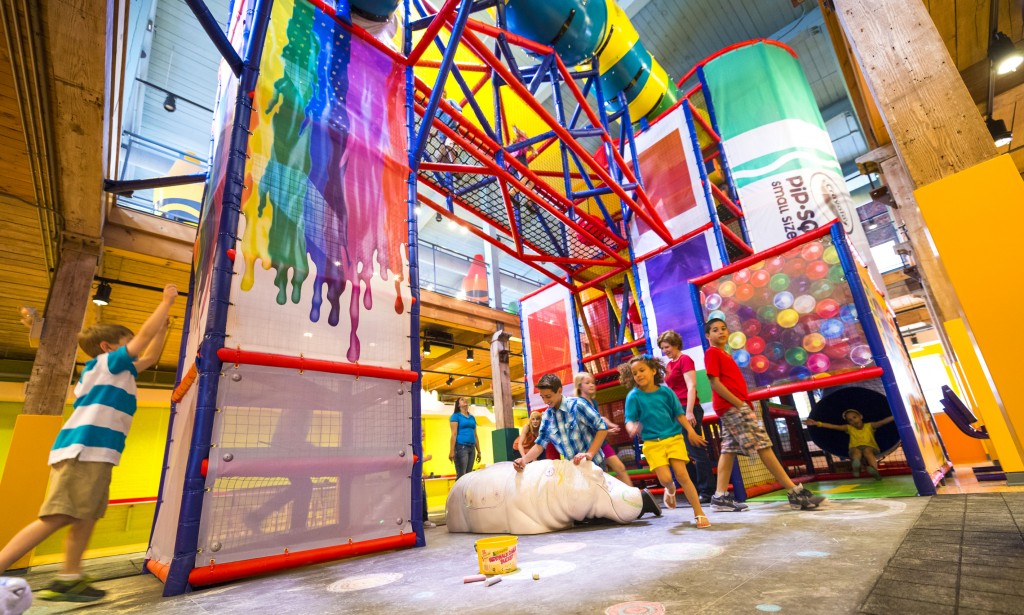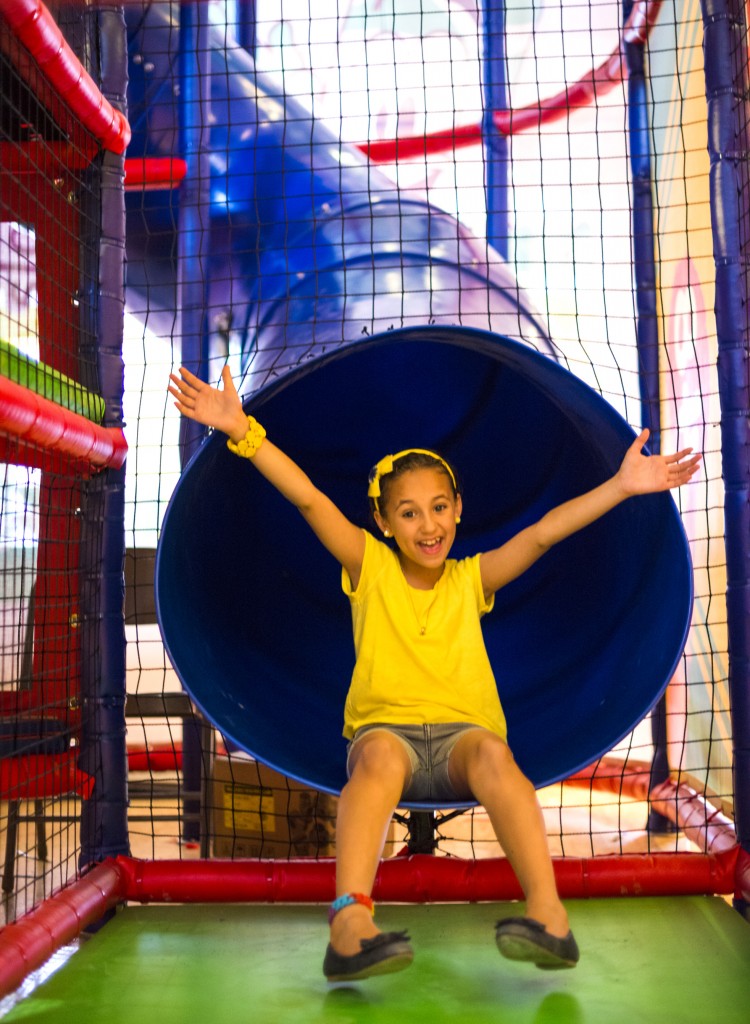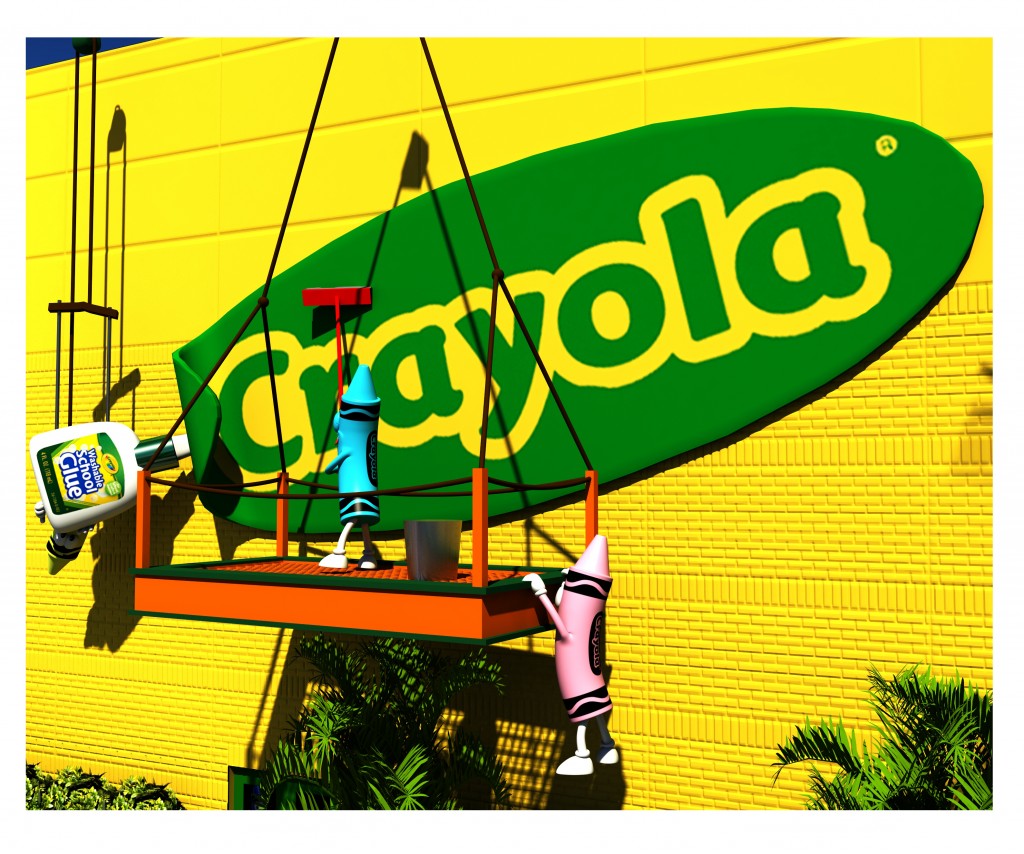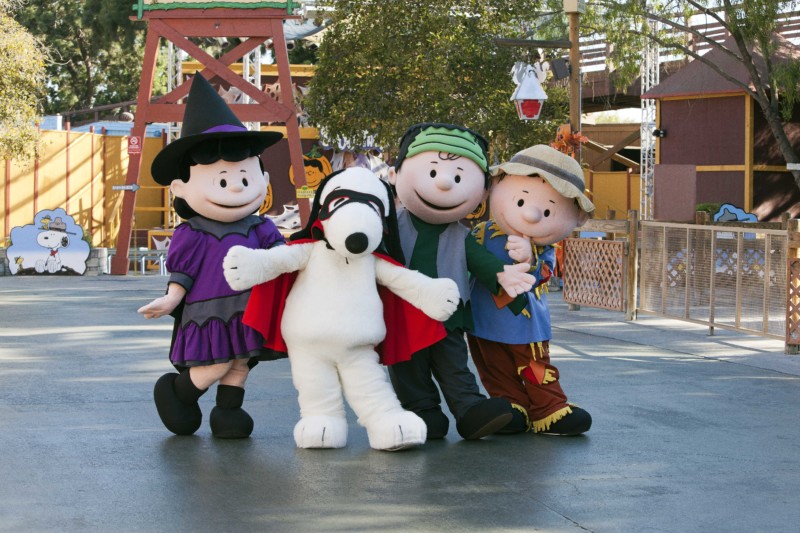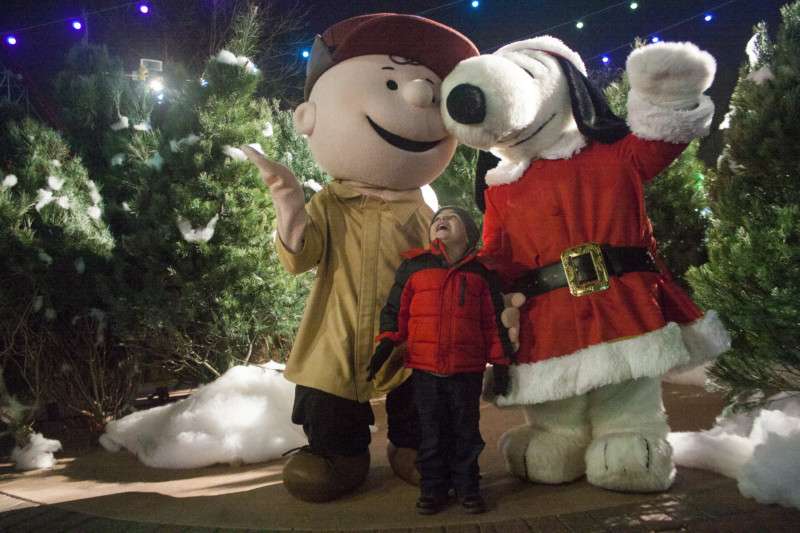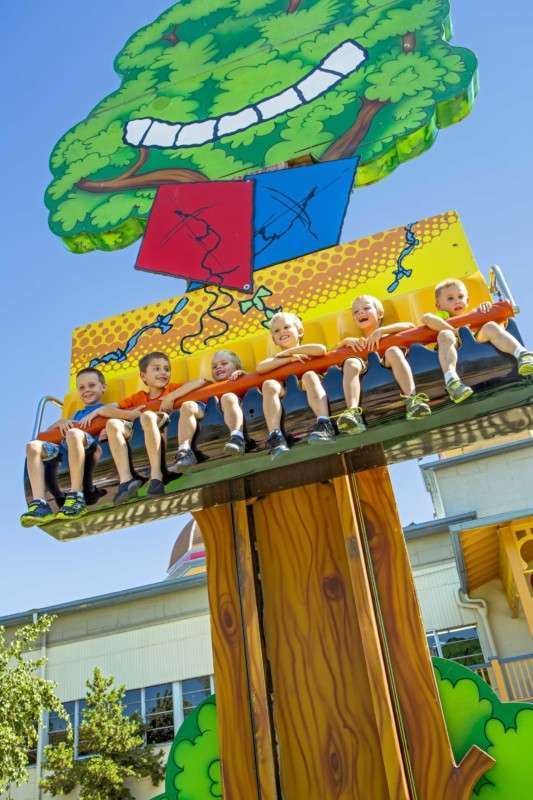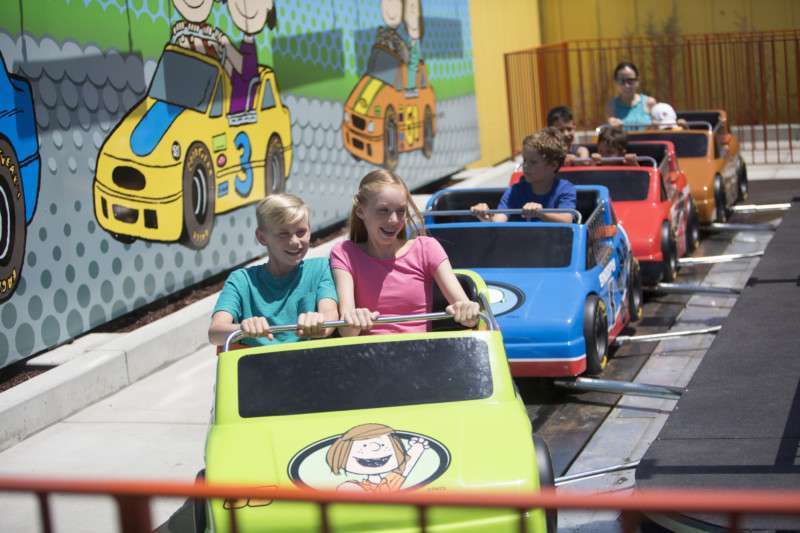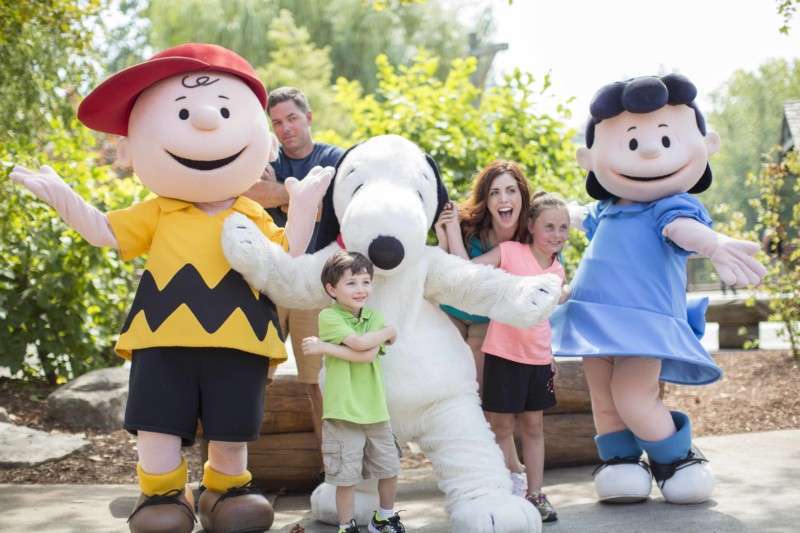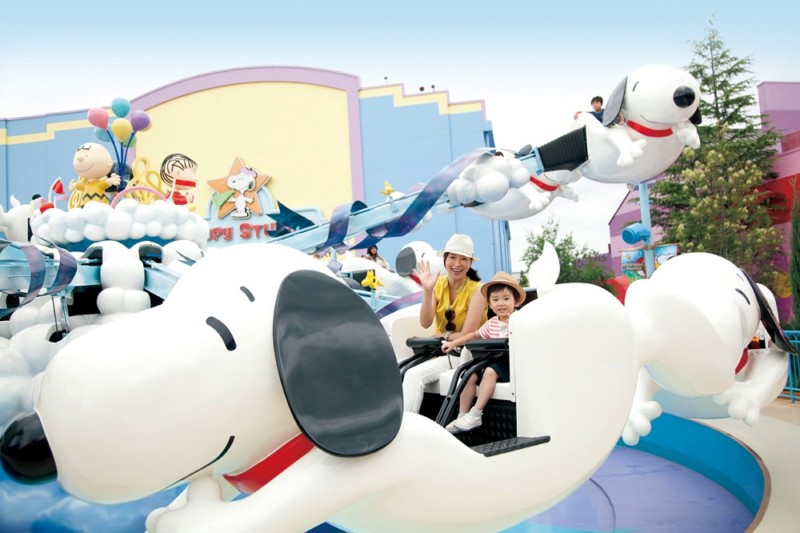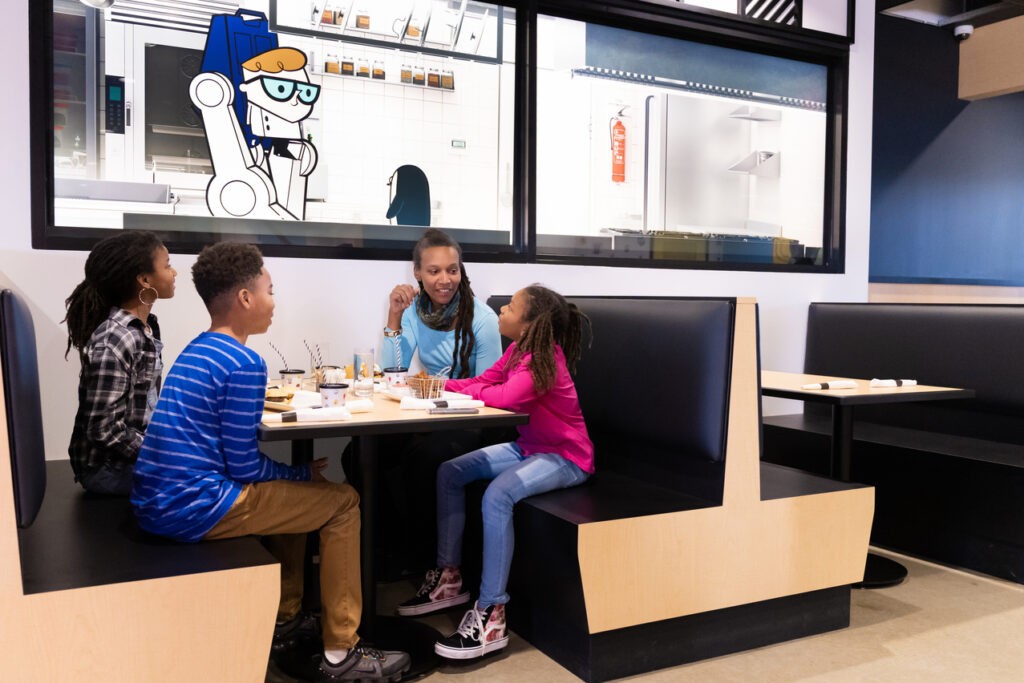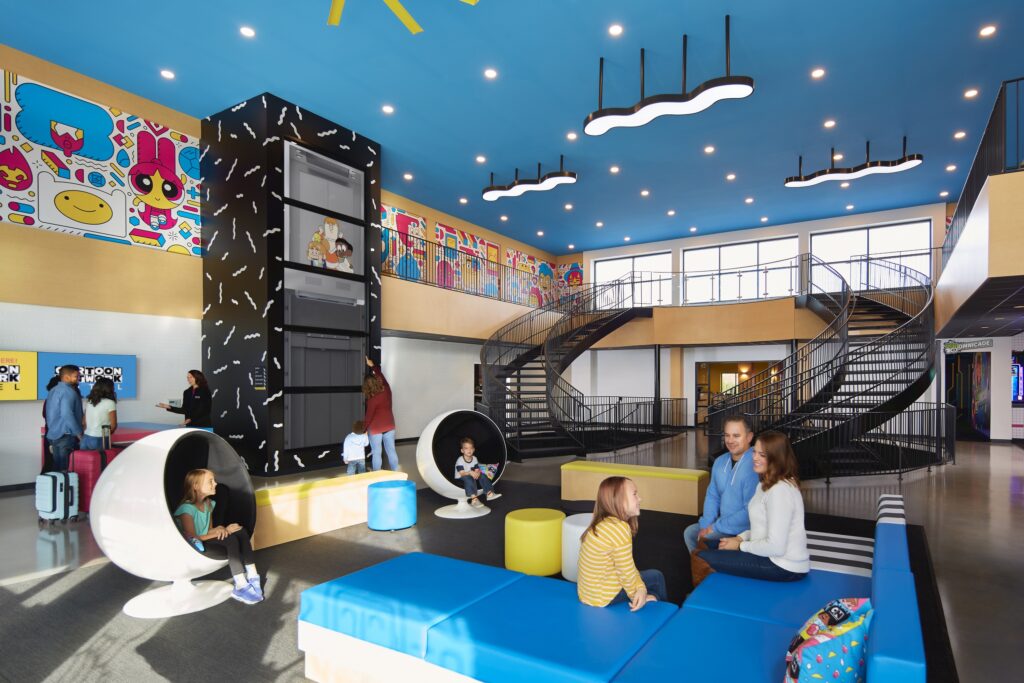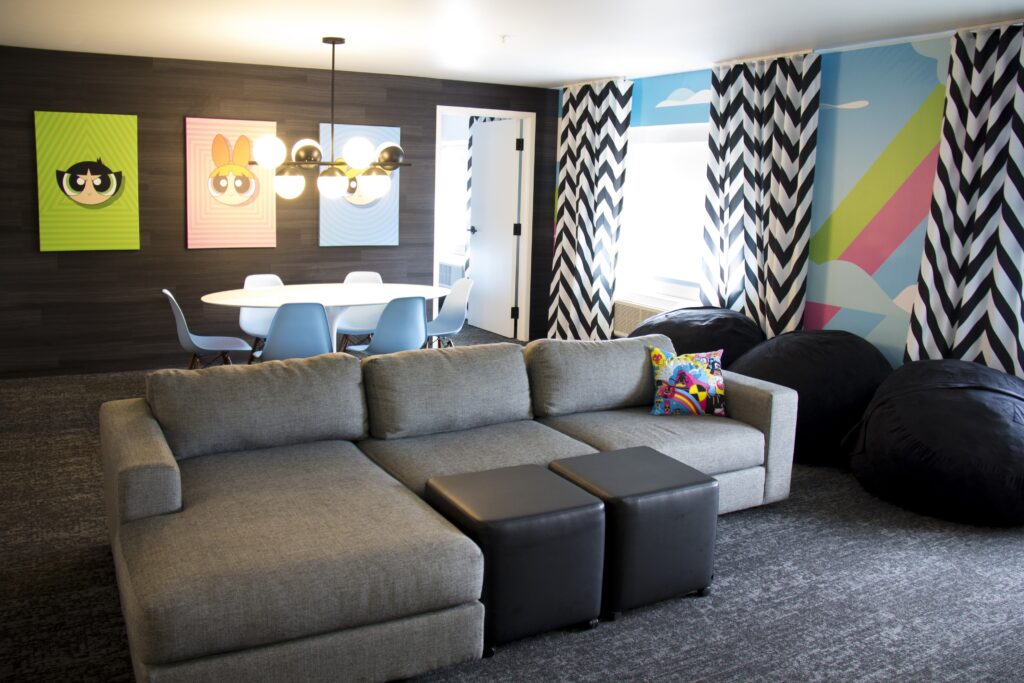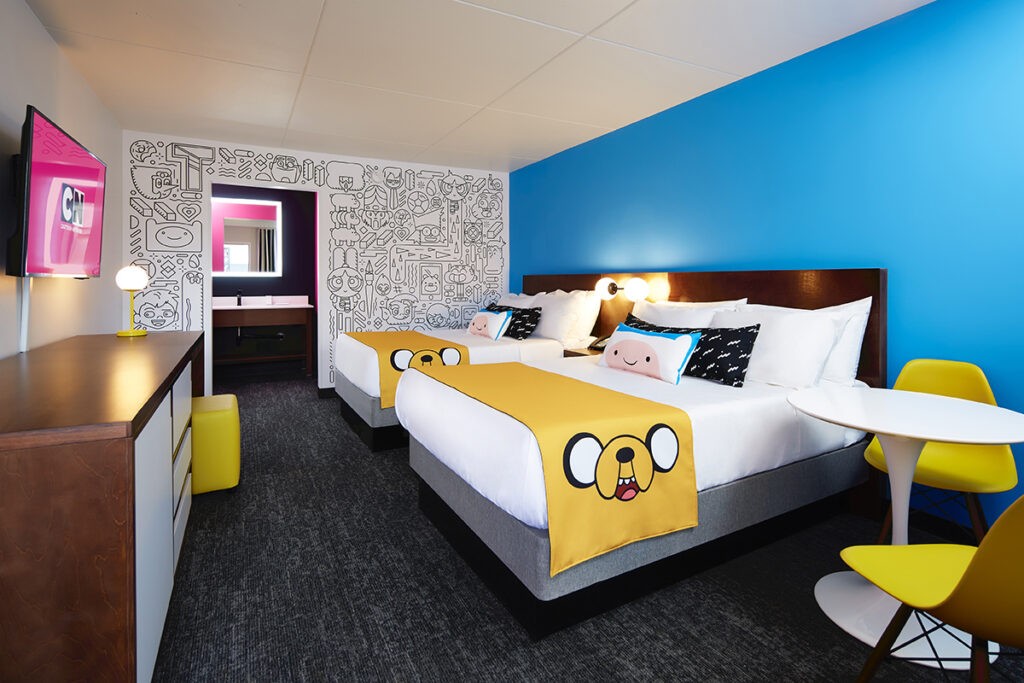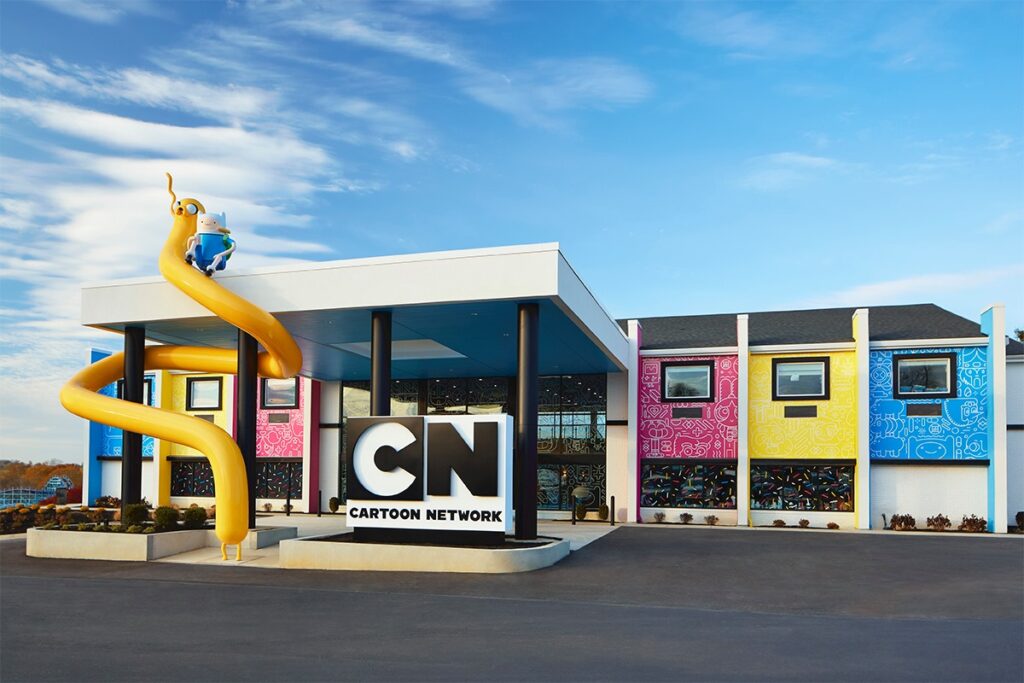by Judith Rubin
Over the past decade, consumer priorities and behavior patterns have dramatically evolved, especially with the explosion of online shopping, television streaming, and the growth of the video game industry. Options for in-home entertainment and services have seen rapid growth, and yet, consumers still desire unique activities that can only be experienced out of the home. This has created new challenges and yet exciting opportunities for marketers and operators in the world of Location Based Entertainment (LBE).
Core to the mission is how best to engage with consumers to gain their attention in a cluttered marketplace, and many leisure and retail providers have begun to employ popular entertainment brands to meet this opportunity. However, with rising guest expectations, applying entertainment brands effectively has become a unique discipline unto itself. Many operators today are on a quest for utilizing high-profile brands and are seeking guidance how best to marry those brands and their storylines with LBE attractions. On the other side of the equation, Intellectual Property (IP) licensors are pursuing platforms to expand their presence and their followings.
George Wade has become a specialist in branded entertainment and a unique force in assisting the attractions industry to meet these challenges. He has a keen understanding of the power of brands, deep ties in the themed entertainment business world, and the ability to convey the concept of a whole greater than the sum of its parts. These qualities make him an industry leader – the one who knows, and can bring together, the right people for a conversation out of which great and innovative things emerge – in this case, branded experiences for the LBE space. Wade is able to assemble key players – licensors of brands and IPs, potential licensees, and entertainment operators – for exploratory dialogue and then remain in a supportive position throughout all subsequent stages of discussion and development.
In recent years, Wade has been a key consultant and voice helping bring about successful projects and development conversations for Crayola, Hasbro, Rovio/Angry Birds, Cartoon Network, Peanuts, Halo, and others. Projects he has touched include Crayola Experience, the Halo Outpost Discovery Tour, the touring FRIENDS popup, Cartoon Network Hotel, Snoopy Gardens in Jeju Korea, The Peanuts Touring Experience launching in 2021 with Kilburn Live, and the new Angry Birds Topgolf experience which launched in October 2020 at 30 Topgolf locations.
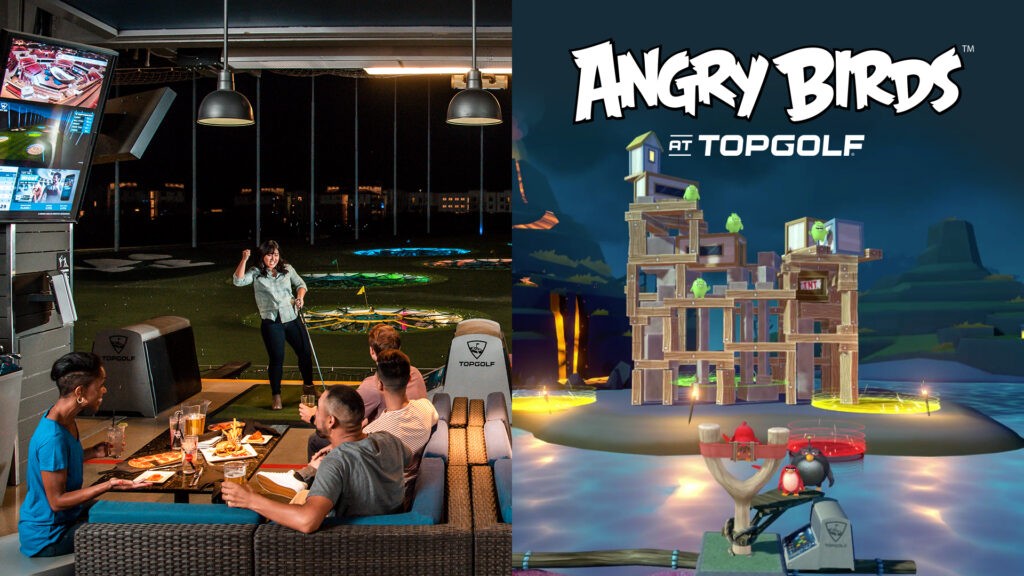
Courtesy Rovio.
“I’ve known George Wade for 15 years,” says Warren Schorr, Vice President Business Development and Global Licensing, Crayola. “I have always been impressed with his holistic thinking. In the LBE world, interested parties generally think about a project from one of three angles: the deal itself and how it is structured; the development and management of the project; or the ancillary ties and how they in turn build other business. George understands the importance of all three – and is equally talented in each of those spaces.”
Wade’s branded entertainment skills emerged as his career progressed. He came up during a highly inventive period of the visitor-attractions industry, building on what he learned and observed. He made the most of these learnings as his career evolved. Working on pioneering projects at influential companies – Landmark Entertainment in the 1980s, Iwerks Entertainment in the ‘90s, and MGM Studios in the 2000’s – Wade was ahead of his time in recognizing the fertile possibilities of marrying IP with content on themed entertainment platforms. He has helped engineer and drive the trend and the conversation around it. Today, making matches between brands and LBE has been the primary goal of his consultancy, Bay Laurel Advisors, founded in 2009.
Collaboration and pleasing the fan
For Wade, IP/LBE collaborations are an art form in which his creative self, business acumen, live theater background (with a degree in Theatrical Design from UCLA), multifaceted industry experience, and relationships all come together. These collaborations fit well with today’s holistic development model of unfolding a brand or IP story across multiple platforms, often with active user engagement. When well-executed, this type of rollout opens new vistas of storytelling, brand engagement and unique consumer marketing opportunities in ways that benefit both brands and LBE operators alike.
Realizing projects of this kind is a highly collaborative process with very specific goals. It demands effective interaction between multiple stakeholders with attention to many details, far beyond the initial “yes” at the conference table. Success is a win-win-win-win: for the licensee, the licensor, the venue, and the guest (which can be an intensely devoted and exacting fan base). “If it pleases a brand’s very loyal fan, it will also please the non-fan, but you absolutely must meet the expectations of that loyal fan,” says Wade. “Brands are a tool to turbo-charge projects and effectively attract consumers. There is an art to it that has developed over the past decade as we show how brands can and should play an important role in entertainment, in so many different ways. At the end of the day, it’s about driving more profits for everybody.”
Robocop rides
In the 1990s, Wade engineered a definitive, seminal project during his time as VP, Business Development at Iwerks Entertainment. Iwerks (now SimEx-Iwerks) was helmed by founders Don Iwerks and CEO Stan Kinsey who established the company as a leader in the creation of concepts, technologies, and products for media-based attractions. Wade’s breakthrough licensing project with Iwerks was strategizing a ridefilm experience that successfully brought feature film IP into motion-based ridefilm attractions. Robocop: The Ride debuted in 1993. Variety noted in an October 1992 article by Matt Rothman, “Expanding into a new area of theme park filmmaking, Iwerks Entertainment has licensed ‘RoboCop,’ the futuristic crime-fighter from Orion Pictures, for its own rides. This is the first time a ride developer has acquired a film property from a movie company.”
“Iwerks senior management recognized that our theme park clients desired attractions that would drive attendance,” said Wade. “We believed that one key method to achieve this goal was to provide them with ridefilms in which the marketing was built-in. Robocop: The Ride was a very clean marketing message to the consumer!”
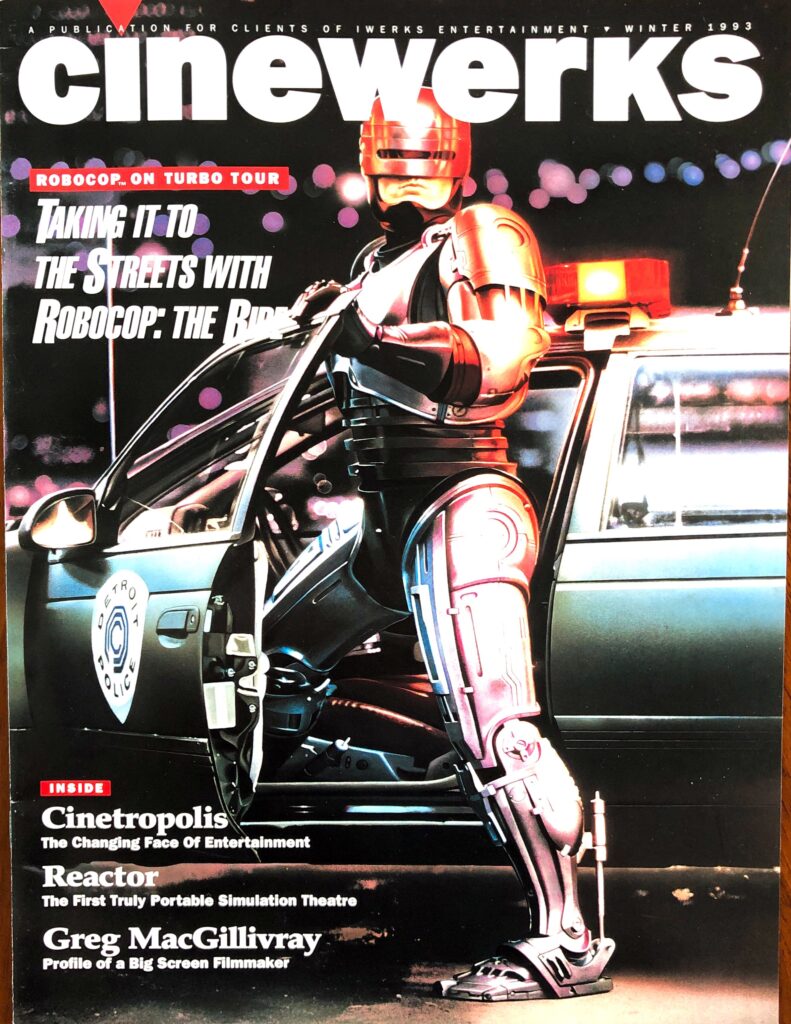
Cinewerks, a publication for clients of Iwerks Entertainment, copyright SimEx-Iwerks. Robocop TM and copyright Orion Pictures.
Robocop the Ride, in the early days of modern theme parks, built on the connection between cinema properties and attractions. Spurred by its success, Iwerks followed up with its ‘Aliens’ ridefilm. Branded entertainment became a cornerstone of Iwerks software development strategy.
During his time at MGM, Wade worked to help the content-provider understand the needs of operators in this context. This allowed the brand to better understand the perspectives of the operator and the unique challenges in developing branded attractions. “It was a period when there were many potential licensees interested in developing projects around studio brands, especially in Asia,” says Wade. “Having an understanding of the key guardrails of attraction development allowed MGM to become a better licensing partner for our licensees.”
Crayola transition
Wade realized that brands of all kinds hold value for attractions, and vice versa. “Brands not only bring the name from a marketing standpoint, they bring rich storylines that immediately connect with consumers,” he says. He and Warren Schorr first met when both were working at MGM; after Schorr moved on to Crayola, he recruited Wade to consult on Crayola’s licensing efforts and brought him to the attention of the senior leadership and team leading the redevelopment of the Crayola Factory attraction in Easton, PA into the first Crayola Experience, opening to acclaim in May 2013. Wade served as the project manager. “Putting together project teams is a key part of the process of bringing that brand or IP to life on a new platform,” says Wade.
The Crayola Experience. Images courtesy Beaudry Interactive, JRA, and Weber Group.
Its success led to more. There are now five Crayola Experiences throughout the US: Easton, Orlando (in the Florida Mall); Minneapolis (in the Mall of America); Plano, TX (in the Shops at Willow Bend) and Chandler, AZ (in the Chandler Fashion Center). George Wade was a senior advisor and project manager on all of them, and additionally has advised on the development of new, licensed projects for Crayola Licensing. “He is a valued, respected asset inside the company,” says Schorr. “We value his wisdom and assessment of a situation. His external point of view can help us find internal consensus. He is also an exceptional production manager. His manner of advising and leading and directing are truly empowering to teams, even when it’s a team he doesn’t oversee directly.”
Serving consumers in today’s world
Where does Wade stand on branded experiences in the pandemic? From his perspective, opportunities and potential benefits remain plentiful and dialogue continues to take place. In fact, as the LBE industry begins to identify a new reality, reaching consumers with compelling experiences will become even more critical for operators. Recent project announcements support this view.
Says Wade, “Brand is even more important now than it was pre-Covid. The operators working with brands have had to adjust on the fly in shaping the guest experience. But the brand clears out the noise in the marketplace to get the initial marketing message across. We continue to see the proliferation of all kinds of LBE – Family Entertainment Centers (FEC’s), stand-alone attractions, hotels, themed dining, and popups. An emerging category is shopping malls, which were already reinventing themselves as regional entertainment destinations, pre-pandemic. Working with a brand conveys an immediate message to the consumer that can rivet their attention.”
Wade is particularly bullish on the smaller projects for the LBE industry. “For the licensor and licensee, limited-scale undertakings, with a lower risk profile, are critical during the challenges of this pandemic.” The staycation trend that prevailed during the Great Recession of 2009-10 is a clue to serving consumer needs in the current environment. “People still want to get out of the house,” says Wade. “They want entertaining and educational experiences, to dine out, to go shopping. They need family recreation and getaways. Today, those will be shorter trips to local and regional destinations, where they have as much control as possible over their environment and more of it outdoors. The industry sees this and has already pivoted to serve it.”
For its part, Crayola is moving ahead with its LBE ventures and announced a new direction in September 2020. Crayola IDEAworks: The Creativity Exhibition is a traveling, interactive exhibition produced by Agency808 in collaboration with Philadelphia’s renowned science museum, The Franklin Institute, where it will premiere in February 2021.
A matchmaker: Peanuts
Two recent examples from the Peanuts portfolio are Snoopy Garden and a new partnership with Kilburn Live.
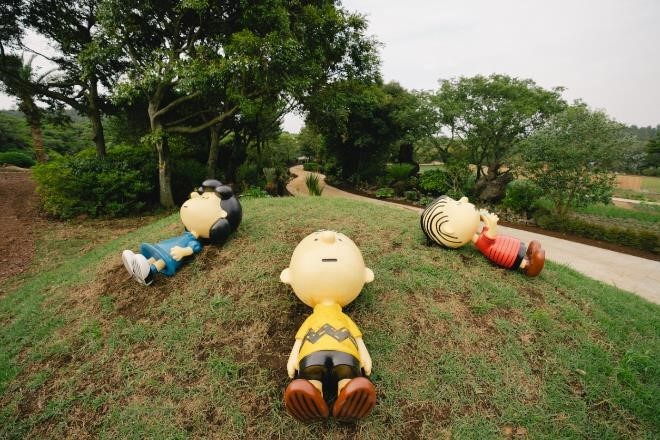
Snoopy Gardens. Courtesy Peanuts Worldwide.
In July 2020, the new Snoopy Garden opened in Jeju, South Korea. The 20-acre property, developed by SN Garden, has indoor and outdoor components. The indoor exhibits focus on Peanuts characters, relationships, and stories; outdoors is more about adventure and relaxation, Snoopy-style. “There is a wealth of storylines and themes in the Peanuts universe suitable for an outdoor recreational venue such as the Great Pumpkin, kite flying, baseball and so much more,” says Wade, “and they convey an immediate comfort level and familiarity to the guest.”
In February 2020, Kilburn Live, the Live Events division of Kilburn Media, announced a new partnership with Peanuts Worldwide. Licensor and licensee will collaborate to create a new immersive experience to coincide with the milestone 70th anniversary of the first Peanuts comic strips. “Kilburn Live is developing an immersive experience to fit into the thriving location-based entertainment trend,” stated the announcement. “It promises to give guests a family-friendly journey with their pals Charlie Brown, Snoopy, and the rest of the gang. The experience plans to highlight the timelessness of Peanuts in a modern way.” While the pandemic slowed development, the project is in creative design and will launch in late 2021 or early 2022.
Peanuts characters appear at theme parks around the world. Courtesy Cedar Fair.
Craig Herman, Senior Director Category Management, Peanuts Worldwide LLC says, “Through George’s many contacts and relationships, we’ve been able to get in front of developers and operators and develop meaningful relationships. There’s a level of trust within the Peanuts organization that with George’s eyes on projects and his professional input, we’re confident that we’re making informed decisions and working with world-class partners. Because of his extensive experience working in LBE and having managed everything from the licensor perspective, from creative development through project management, we know that he will look at an overall project from every aspect.”
Hospitality game-changer: Cartoon Network Hotel
Hospitality is another platform for brands that has helped operators stay competitive in an increasingly complex market, giving consumers a new experience that also delivers a recognition-comfort level at the same time. The Margaritaville Resorts as well as the Nickelodeon Resort in the Dominican Republic are two examples of this trend. A recent addition to the branded hotel market is the Cartoon Network Hotel.
For over 25 years, Cartoon Network has touched multiple generations with its stories and ever popular characters such as Ben 10, Blossom, Bubbles and Buttercup, Steven Universe, and Jake and Finn from Adventure Time. In those 25 years, the network has been a major force in pop culture and has achieved a huge presence on digital and mobile platforms. So, while relatively new to the LBE sector, Cartoon Network is no stranger to the licensing business and to multi-platforming. The key demographic served is children ages six to 11, and (according to Cartoon Network) these kids are not just viewers, they are Fans – active, loyal and engaged.
Cartoon Network Hotel. Courtesy Cartoon Network.
In collaboration with Palace Entertainment, the first Cartoon Network (CN) hotel opened to the public in Lancaster, PA in January 2020. Under contract to CN, Bay Laurel Advisors and George Wade supported the project both in structuring the relationship as well as advising the creative and construction teams in project execution. As fortune would have it, the hotel was obliged to close after only eight weeks, due to the pandemic (it reopened August 1, at reduced capacity). There was, however, enough of a window for the hotel to earn resounding approval from its target demographic, as voiced in a Dec 26, 2019 USA Today review in which journalist Candy Woodall relied heavily on her 10-year-old son’s impressions, summing up with “Parents, let your kids come here.”
Gina Salamone echoed the sentiment in her Feb 5, 2020 review for the New York Daily News: “Now your kids can spend the night in a dreamland inspired by their favorite cartoons.”
The hotel was designed with tasteful nods to the Cartoon Network brand and with iconic characters brought to life in never-before-seen ways throughout the property.
“Simply put, this unique hotel delivers on the brand promise of Cartoon Network for guests,” says Wade. “It demonstrates the magic of what can happen with the right match of brand and experience, and the right team creating and delivering the experience. And each new project suggests new possibilities – new layers that can be added to the story. Success leads to success; innovation leads to innovation. There is so much unexplored territory.”
Bonding
Theater roots run deep in the attractions industry, and Wade, a UCLA School of Theater, Film and Television grad himself, sees branded LBE experiences as an extension of the theatrical genre, in both the way they are created and the nature of the guest experience. Wade cites “The collaborative culture, the distillation of message, the emotional bond with the audience, the built environment, storytelling and live engagement- in short, the blend of all elements that enables suspension of disbelief, immersion and escape into a world that makes participants feel the real world all that more profoundly and with fresh eyes upon their return. For that to happen in LBE as it does in well-executed theater, there needs to be a strong bond between the brand and the operator, helping each understand the strengths of the other,” says Wade. “We serve to provide that connective tissue for our clients. It’s an evolutionary process: help the brand understand our industry, identify opportunities where the brand will add great value, develop the business relationship, and then during implementation, assist in engineering the-give-and-take to come up with a final product that is going to be something of uncompromised authenticity that the consumer is going to love.”
More information about Bay Laurel Advisors at: www.tinyurl.com/BayLaurelAdvisors



